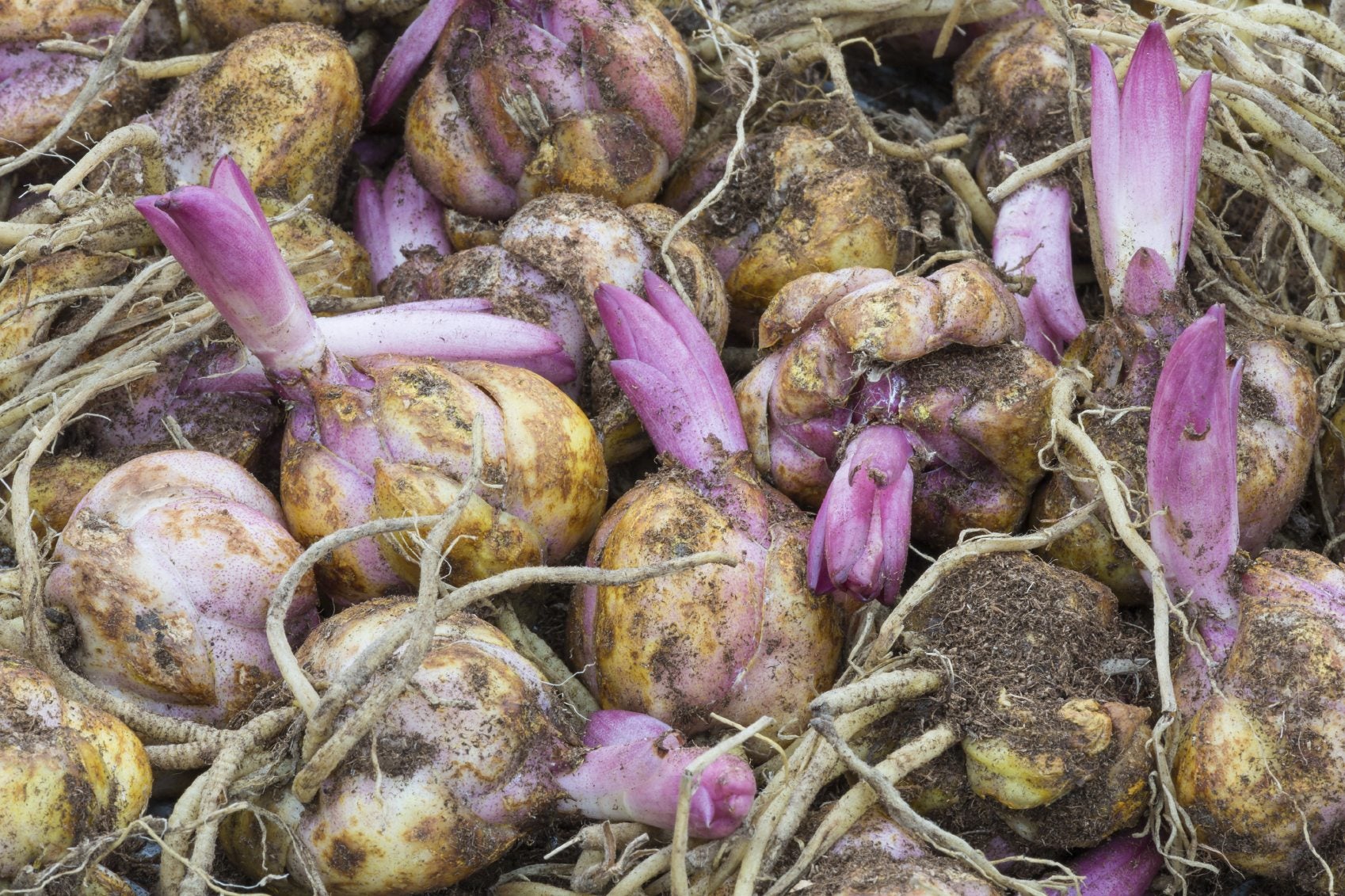Overwintering Lilies – Do Lily Bulbs Need To Be Overwintered


There is a lily for everyone. Quite literally, as there are over 300 genera in the family. Potted lilies are common gift plants but most forms also do well in the garden. Do lily bulbs need to be overwintered? If you live where no freezing occurs, you can leave the bulbs in the ground all year long. Gardeners in colder climates would do well to pull up the bulbs and save them indoors unless you treat the plants as annuals. But that would be a shame, since storing lily bulbs is fast, easy and economical. Read on to learn how to store lilies and preserve these delightful flowers.
How to Care for a Lily Plant Over Winter
As a tender plant, it is a good idea to dig up and store your lily bulbs to ensure year after year beauty. Most lilies are hardy to United States Department of Agriculture zone 8 with good mulching. However, bulbs left in the ground during winter freezes may not come back in spring and can even rot. The process is simple and can save the life of a magical flowering plant that has unabashed appeal. Container grown lilies are simple to save until the next bloom period. Cut off spent flowers and allow the greenery to die back. Diminish watering as the plant begins to go dormant. Once all the foliage has died back, dig up the bulbs and separate any that have split into offsets. Offsets are new bulbs and will result in new plants. Tease them away from the parent bulb and plant them separately in well-draining soil. Move containers indoors to a dry location where temperatures do not exceed 45 degrees Fahrenheit (7 C.). You can store the pots in the garage if it is insulated or the basement. Excessive heat will fool bulbs into sprouting early but freezing temperatures can damage the plant. Another important tip on how to care for a lily plant over winter is to avoid watering. The bulbs do not need watering more than once per month in low humidity areas and not at all until late winter in high moisture sites.
How to Store Lilies
Overwintering lilies in cool climates starts with digging the bulbs from the soil. Wait until the foliage has died back but remove them from the ground before any danger of frost occurs. Carefully lift the bulbs and divide them if necessary. Rinse the soil from the bulbs and check them for mold or damage. Discard any that aren't healthy. Let the bulbs dry for a few days in a cool, dark location. Many gardeners dust bulbs with fungicide before storing them, but this isn't strictly necessary if there is no sign of rot and the bulbs have fully dried. Place bulbs in peat moss inside a cardboard box or paper bag. Do lily bulbs need to be overwintered in paper or cardboard? Not necessarily, but the container needs to breath to prevent moisture from collecting and causing mildew or mold. You might also try a mesh bag filled with moss.
What to Do After Overwintering Lilies
After storing lily bulbs during winter, wait until mid to late spring to plant them. If you want an early start, place bulbs in containers with well-drained soil in pots 6 weeks before the date of the last freeze. Outdoor lilies benefit from rich, loose soil. Incorporate compost or leaf litter up to 8 inches (20.5 cm.) into the soil. Plant bulbs 6 to 7 inches (15 to 18 cm.) deep and 6 inches (15 cm.) apart. Press soil in around the bulbs and water immediately. If necessary, provide supplemental water in spring and summer to achieve about an inch (2.5 cm.) of moisture weekly. Sprouting should occur in just a few weeks and glorious flowers within months.
Sign up for the Gardening Know How newsletter today and receive a free copy of our e-book "How to Grow Delicious Tomatoes".

Bonnie Grant is a professional landscaper with a Certification in Urban Gardening. She has been gardening and writing for 15 years. A former professional chef, she has a passion for edible landscaping.